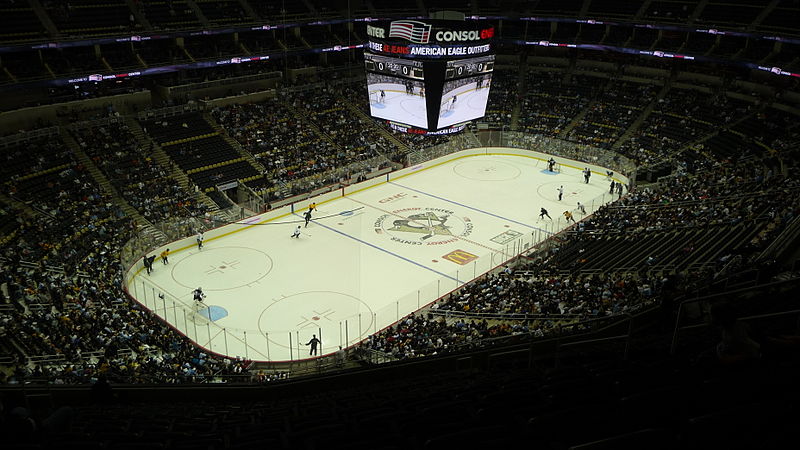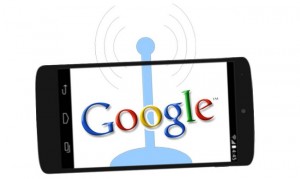This will be the result of a new partnership into which the NHL team has recently entered for this purpose.
The Pittsburgh Penguins NHL team has now entered into a new partnership with Rover, a proximity marketing firm that will be using iBeacon technology to help to enhance the experience for fans.
The idea is to use the geolocation technology in conjunction with the use of the Rover proximity platform.
There is already existing iBeacon tech installed at the stadium and by bringing this together with the proximity platform at Rover, it will become possible to create a beacon-triggered experience for fans. This will send them content that is location specific by way of the Penguins app. Fans who have the app on their smartphones will be able to access exclusive content when they attend games at the CONSOL Energy Center during the length of the 2015 to 2016 season.
As soon as fans with the mobile app step into the arena, the iBeacons will provide an “at the game experience.”
 Once fans are in the arena, the beacon-triggered content is released, greeting the device users with special content. Once they reach the Mario Lemieux statue, an interactive experience is launched and they are provided with various types of discounts and offers for concessions.
Once fans are in the arena, the beacon-triggered content is released, greeting the device users with special content. Once they reach the Mario Lemieux statue, an interactive experience is launched and they are provided with various types of discounts and offers for concessions.
According to Erik Watts, the senior director of technology for the Penguins, “We are excited to partner with Rover. Rover makes it easy for us to deliver relevant content to fans, and provides us with a platform to which we can have input and help develop an experience that is exciting and engaging for our fans and corporate partners.” While they started to successfully use the geolocation technology beacons for the 2014-2015 season, this year they are hoping to be able to “take it to the next level,” with the added advantage provided by Rover.
Rover CEO, John Coombs explained that the company is hoping to eliminate the complexity that is associated with the use of iBeacons and location based marketing, and will continue its evolution on making it simpler to take advantage of the power of this tech.
The tech giant will be compatible with Bluetooth LE devices and will compete directly with Apple’s device.
Google has now announced its new open-source platform, Eddystone, for devices with Bluetooth LE, and that will make it possible to communicate with other compatible devices such as smartphones.
This will also place the company in direct competition with the iBeacon from Apple.
The Eddystone platform is the latest addition to the geolocation marketplace, which is an integral component to the Internet of Things (IoT) ecosystem. The use of this type of technology could potentially enable a great deal more in terms of contextual services that are available within the actual physical world. The use of beacon tech makes it possible for low-power Bluetooth enabled gadgets to effectively transmit information to smartphones and other similar mobile devices.
Eddystone and other beacons can’t track a smartphone, but the mobile device can detect the beacons.
 Once a smart device has detected a beacon, it is capable of receiving data from it. The user of the mobile device has control over what type of data he or she wants to receive by way of the settings that have been allowed in the apps that have been downloaded. Based on those settings, the smartphone chooses which beacon information will trigger a response within the mobile device.
Once a smart device has detected a beacon, it is capable of receiving data from it. The user of the mobile device has control over what type of data he or she wants to receive by way of the settings that have been allowed in the apps that have been downloaded. Based on those settings, the smartphone chooses which beacon information will trigger a response within the mobile device.
Apple was the very first tech company to step into that form of geolocation and integrate the capability with its iOS 7. At the start, the primary focus for this technology was essentially geared toward retail. Since then, there has been notable growth in the adoption of these beacons among major retailers such as Lord and Taylor’s and Macy’s. Equally, McDonald’s and Starbucks have also used this location based tech in some locations. In the majority of instances, the tech is used to transmit specific promotions, or deals to consumers based on their specific location within a store.
While the outcomes have been mixed, so far, Eddystone is entering into this space at a very early time in its existence and there remains a tremendous amount of potential for innovation, growth and usage.
![]() Once fans are in the arena, the beacon-triggered content is released, greeting the device users with special content. Once they reach the Mario Lemieux statue, an interactive experience is launched and they are provided with various types of discounts and offers for concessions.
Once fans are in the arena, the beacon-triggered content is released, greeting the device users with special content. Once they reach the Mario Lemieux statue, an interactive experience is launched and they are provided with various types of discounts and offers for concessions.
 Once a smart device has detected a beacon, it is capable of receiving data from it. The user of the mobile device has control over what type of data he or she wants to receive by way of the settings that have been allowed in the apps that have been downloaded. Based on those settings, the smartphone chooses which beacon information will trigger a response within the mobile device.
Once a smart device has detected a beacon, it is capable of receiving data from it. The user of the mobile device has control over what type of data he or she wants to receive by way of the settings that have been allowed in the apps that have been downloaded. Based on those settings, the smartphone chooses which beacon information will trigger a response within the mobile device.